From inside (document excerpt):
24ACB6 Comfortt Series Air Conditioner with Puronr Refrigerant 2 To 5 Nominal Tons Installation Instructions SAFETY CONSIDERATIONS Improper installation, adjustment, alteration, service, maintenance, or use can cause explosion, fire, electrical shock, or other conditions which may cause death, personal injury, or property damage. Consult a qualified installer, service agency, or your distributor or branch for information or assistance.
Heating, Ventilating and Air Conditioning User Manual Free Download. HAVC Operator’s Manual. Auto AC Free Instruction Manual Download PDF.
The qualified installer or agency must use factory-authorized kits or accessories when modifying this product. Refer to the individual instructions packaged with the kits or accessories when installing. Follow all safety codes. Wear safety glasses, protective clothing, and work gloves. Use quenching cloth for brazing operations. Have fire extinguisher available. Read these instructions thoroughly and follow all warnings or cautions included in literature and attached to the unit. Consult local building codes and current editions of the National Electrical Code ( NEC ) NFPA 70. In Canada, refer to current editions of the Canadian electrical code CSA 22.1. Recognize safety information. This is the safety-alert symbol When you see this symbol on the unit and in instructions or manuals, be alert to the potential for personal injury. Understand these signal words; DANGER, WARNING, and CAUTION. These words are used with the safety-alert symbol. DANGER identifies the most serious hazards which will result in severe personal injury or death. WARNING signifies hazards which could result in personal injury or death. CAUTION is used to identify unsafe practices which would result in minor personal injury or product and property damage. NOTE is used to highlight suggestions which will result in enhanced installation, reliability, or operation. 5. When passing refrigerant tubes through the wall, seal opening with RTV or other pliable silicon-based caulk. (See Fig. 1.) 6. Avoid direct tubing contact with water pipes, duct work, floor joists, wall studs, floors, and walls. 7. Do not suspend refrigerant tubing from joists and studs with a rigid wire or strap which comes in direct contact with tubing.(See Fig. 1.) 8. Ensure that tubing insulation is pliable and completely surrounds vapor tube.


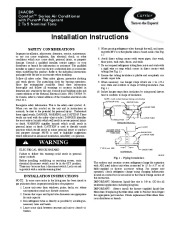 Carrier Owners Manual - Enlarge page 1 of 10
Carrier Owners Manual - Enlarge page 1 of 10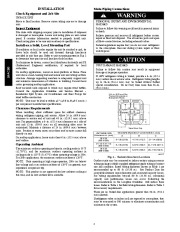 2 of 10
2 of 10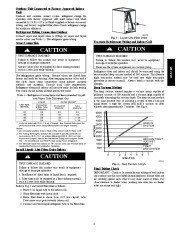 3 of 10
3 of 10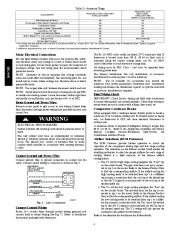 4 of 10
4 of 10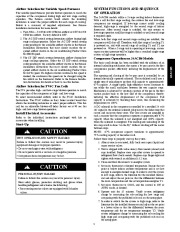 5 of 10
5 of 10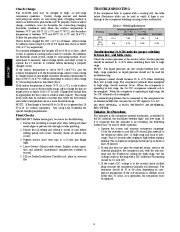 6 of 10
6 of 10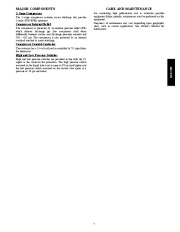 7 of 10
7 of 10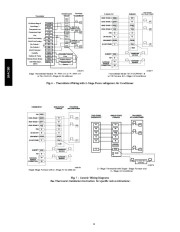 8 of 10
8 of 10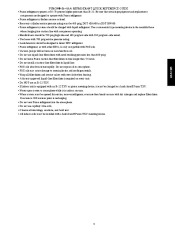 9 of 10
9 of 10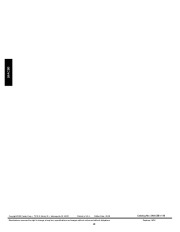 10 of 10
10 of 10